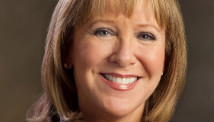TOKYO (Reuters) - Asian shares rose on Wednesday after rounds of profit taking from a sharp rally at the start of the new year subsided, while investors waited warily for corporate earnings season to kick off in full force.
MSCI's broadest index of Asia-Pacific shares outside Japan <.miapj0000pus> rose 0.4 percent, with Australian shares <.axjo> among the outperformers with a 0.4 percent gain to break a three-day losing streak. Hong Kong shares <.hsi> also climbed 0.4 percent.
South Korean shares <.ks11> were virtually flat. Shares in tech heavyweight Samsung Electronics Co Ltd were also flat despite announcing on Tuesday a better-than-expected estimated fourth-quarter operating profit.
"The main (Seoul) index is trading nearly flat after falling steadily since last week's rapid gains, due to concerns about lackluster fourth-quarter earnings outlooks," said Park Jung-sup, an analyst at Daishin Securities.
He said overall market outlooks for fourth-quarter corporate results have been revised down considerably, but worries for earnings shocks remain.
Global shares fell and bond prices rose on Tuesday, with investors cautious ahead of a U.S. earnings season expected to show sluggish growth in quarterly corporate profits.
The U.S. earnings season began on Tuesday with Alcoa Inc , the largest aluminum producer in the U.S., with customers in a wide range of industries, reporting a fourth-quarter profit of $242 million, in line with expectations.
U.S. corporate profits are expected to be higher than the third quarter's lackluster results, but analysts' estimates are down sharply from where they were in October.
Credit Suisse said in a research note that Asian equity market price indices may start to catch up with earnings estimates which had been outperforming market prices, suggesting further upside scope for Asian share prices.
The consensus earnings forecast so far is flat in January, following virtually flat revisions in December, it said.
"It was the persistent EPS downgrades that led to the gap between equity market price indices and EPS. These flat revisions could act as a catalyst for equity market price indices to converge with EPS," Credit Suisse said.
Data flows were light with Australian retail sales showing a surprise softness, falling 0.1 percent in November from October, undershooting forecasts for a 0.3 percent rise on the month and sending the Australian dollar down to session lows of $1.0486 from $1.0517 before the data was released.
China will release its trade data on Thursday, which includes initial estimates for metals imports and exports.
Australian retail sales: http://link.reuters.com/zew92t
China exports graphic: http://link.reuters.com/kun94t
Euro zone retail sales: http://link.reuters.com/tyb25s
^^^^^^^^^^^^^^^^^^^^^^^^^^^^^^^^^^^^^^^^^^^^^^^^^^^^^^^^^^^>
YEN STAYS WEAK
Japan's benchmark Nikkei stock average <.n225> erased earlier losses to crawl up 0.5 percent as the yen's rebound against the dollar lost steam. Investors had been taking profits from the dollar's steady and sharp rally against the yen of about 12 percent over the past two months. The Nikkei had risen about 21 percent in the same period. <.t/>
The dollar was up 0.5 percent to 87.43 yen, recovering from the day's low of 86.825. It scaled its highest since July 2010 at 88.48 on Friday. The euro also steadied against the yen at 114.35, off the day lows of 113.55. The euro last week hit 115.995 yen, its highest since July 2011.
The Bank of Japan will consider easing monetary policy again at its January 21-22 meeting, by likely boosting buying of government bonds and treasury discount bills, while considering a doubling of its inflation target to 2 percent.
Expectations of much bolder monetary easing from the BOJ to help Japan beat deflation under new Japanese Prime Minister Shinzo Abe have encouraged investors to sell the yen.
But as trading resumed from year-end holidays, analysts and traders said markets were ripe for position adjustments.
"After a good run in risk assets since December, we entered in a phase of consolidation which is moving from Japanese equities to short JPY positions," said Sebastien Galy, FX strategist at Societe Generale in New York, in a note, adding that the dollar could consolidate to 85 yen but must first take out the first Fibonacci retracement at 85.75 yen.
Yen crosses which had been bought the most, including the yen/Korean won, are the most exposed to the correction.
"Such a washout in JPY crosses is the opportunity many long-term investors will be waiting for to continue their switch into strategic short yen positions," he said.
The euro held steady against the dollar at $1.3075.
With no major economic data this week, the euro was seen staying in a range ahead of Thursday's European Central Bank policy meeting and Spanish and Italian bond auctions toward the end of the week.
U.S. crude was nearly flat at $93.17 a barrel, after the annual rebalancing of the S&P GSCI commodity index, which increased its weighting for Brent and reduced its share of U.S. WTI crude. Brent was also little changed at $111.90.
Sentiment turned cautious in Asian credit markets, with the spread on the iTraxx Asia ex-Japan investment-grade index widening slightly by 1 basis point.
(Additional reporting by Joyce Lee in Seoul; Editing by Eric Meijer)


